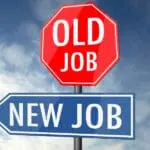 An expertly crafted resume can get you the call back for a job interview. And the benefits don’t have to end there! Your resume is also an excellent resource for interview preparation, ideally featuring all of your standout skills, achievements, and career aspirations in a one- to two-page document.
An expertly crafted resume can get you the call back for a job interview. And the benefits don’t have to end there! Your resume is also an excellent resource for interview preparation, ideally featuring all of your standout skills, achievements, and career aspirations in a one- to two-page document.
Alongside interview coaching techniques such as mock job interviews, resume review should be integral to your interview prep strategy. It will help you make those all-important connections between the job description and your qualifications, so you can tailor your responses accordingly.
Keep reading to find out the many ways that the right resume can help you ace your next interview.
The Importance of Resume Insights
Your resume is your first impression with hiring managers; it gives them tremendous insight into your suitability for the role. So, you want to structure yours in a way that allows them to find the pertinent information quickly and easily. Remember: less is more and white space is key.
Likewise, you want to ensure the underlying messages are an accurate reflection of your professional standards. How well do you communicate in writing? Can you market yourself effectively? Here are some of the takeaways both you and prospective employers may glean from your resume.
- Key Skills and Experience Identification: Your resume spotlights the skills and experience you have to offer that are most relevant to the position and the organization. However, if your resume for a job that requires “a strong attention to detail” is littered with typos, your attention to detail will fall flat with HR professionals. I can’t tell you the times we’ve found errors in resumes that could have been caught with a spell and grammar check and led to us removing the person from our candidate list.
- Tailored Answers to Interview Questions: Details from your work history descriptions can answer common interview questions such as: “What is your greatest accomplishment?” Make sure your resume provides concrete examples of how your performance positively impacted the business or organizational results.
- Strong Interview Pitch: A compelling career objective acts as your “elevator pitch” to recruiters. It should be unique to the position, emphasizing industry-specific certifications, software knowledge, or general experiences that demonstrate your competitiveness.
- Competitive Edge: Hiring managers reportedly spend six seconds reviewing your resume before moving on to the next. Exceptional resumes stand out with job description keywords placed strategically throughout and strong action verbs that convey deliverable results.
- Areas for Improvement: Checking your resume against the job posting may reveal areas where you are lacking—and help you prepare answers to questions an interviewer may have about your capacity to learn and develop on the job.
- Career Track Steadiness: A chronological resume is ideal for those whose careers follow a clear linear progression. This type of resume shows employers a steady employment record with increasing responsibilities and few gaps or interruptions. But it’s not for everyone. Some careers are more transitory, and creating a functional resume that combines skills/competencies into roles or clusters does better justice to ones skillsets without distracting by shorter times in roles or a diversity of jobs early in the resume.
- Effective Self-Marketing to Employers: Resumes also indicate your ability to effectively market yourself as the right candidate for the position. Impress employers with a resume that includes testimonials from previous clients or coworkers; these will clearly communicate what you can do for their business.
How to Integrate Resume Insights into Interview Preparation
A professional resume review will not only help you eliminate common resume mistakes, it will also give you a jump start on preparing for a successful job interview.
- Transforming Resume Details into Anecdotes: The duties you list on your resume are more memorable to interviewers with real-life examples and stories to support them. Prepare to talk about the skills you used to complete those tasks and relate them to the qualifications the employer is seeking.
- Answering Behavioural Questions Effectively: “Tell me about a time when…” questions require you to figure out the skill the interviewer is really looking for and share an experience where you used that skill to overcome a workplace challenge. Go over your resume accomplishments, as they’re great source material for answering these questions. Many people struggle with behavioral interviewing, but there are techniques that can truly help you ace this. Consider working with a Job Search Advisor today.
- Aligning Strengths with Interview Goals: Consider personal strengths (e.g., leadership, time management, creativity) that will bring you the most success with your potential employer, and feature them prominently on your resume. The hiring manager will likely inquire about these strengths, allowing you to expand on the value you will add to the organization.
- Creating a Personalized Interview Strategy: Using your resume to understand your strengths and experiences enables you to customize a plan of action for your interview. You will already know which anecdote to draw on to illustrate your conflict-resolution skills, for example.
- Showcasing Initiative and Readiness: You demonstrated initiative on your resume by emphasizing achievements that show motivation and drive. Focus on verbs like “launched,” “drove,” and “optimized” to show interviewers that you’re a proactive worker who recognizes opportunities for improvements and innovation and can follow through on implementing them.
- Enhancing Your Confidence Level: Thorough study of your resume can boost your confidence by reminding you of all your professional strengths and accomplishments, while preparing you to discuss any of these with conviction.
- Nurturing a Strong First Impression: A strong resume is likely what landed you the interview. Build on that stellar first impression by seamlessly integrating the most convincing resume insights into your responses.
- Fostering a Consistent Narrative: If you’re making a career change, you may find it challenging to establish consistency in your work history. Combination resumes address the issue by emphasizing your transferable skills and experience. Use your storytelling skills during the interview to make the necessary connections come to life for your future employer.
Land Your Dream Job with Our Resume Review and Interview Preparation Services
If you have an upcoming interview, let your resume be your guide through doing the necessary interview prep. Take time to research the employer, including their website and any articles or information online. At Canada Career Counselling, we provide job search support including resume writing services, resume or CV preparation, LinkedIn profile advice, and interview preparation training. Our team of career counsellors, psychologists, and job search advisors can work with you in our offices in Calgary, Toronto, Halifax, or virtually across Canada.
Contact us today for expert career and job search counselling and guidance.





